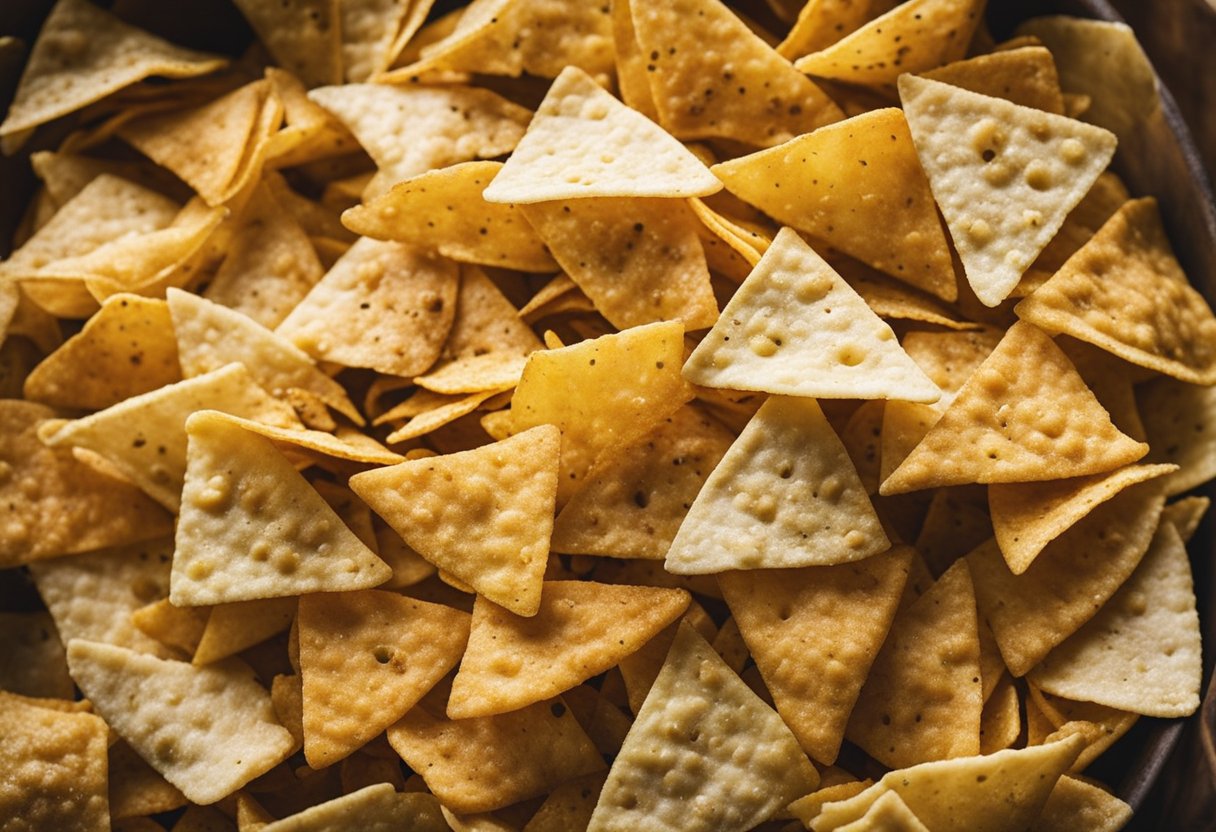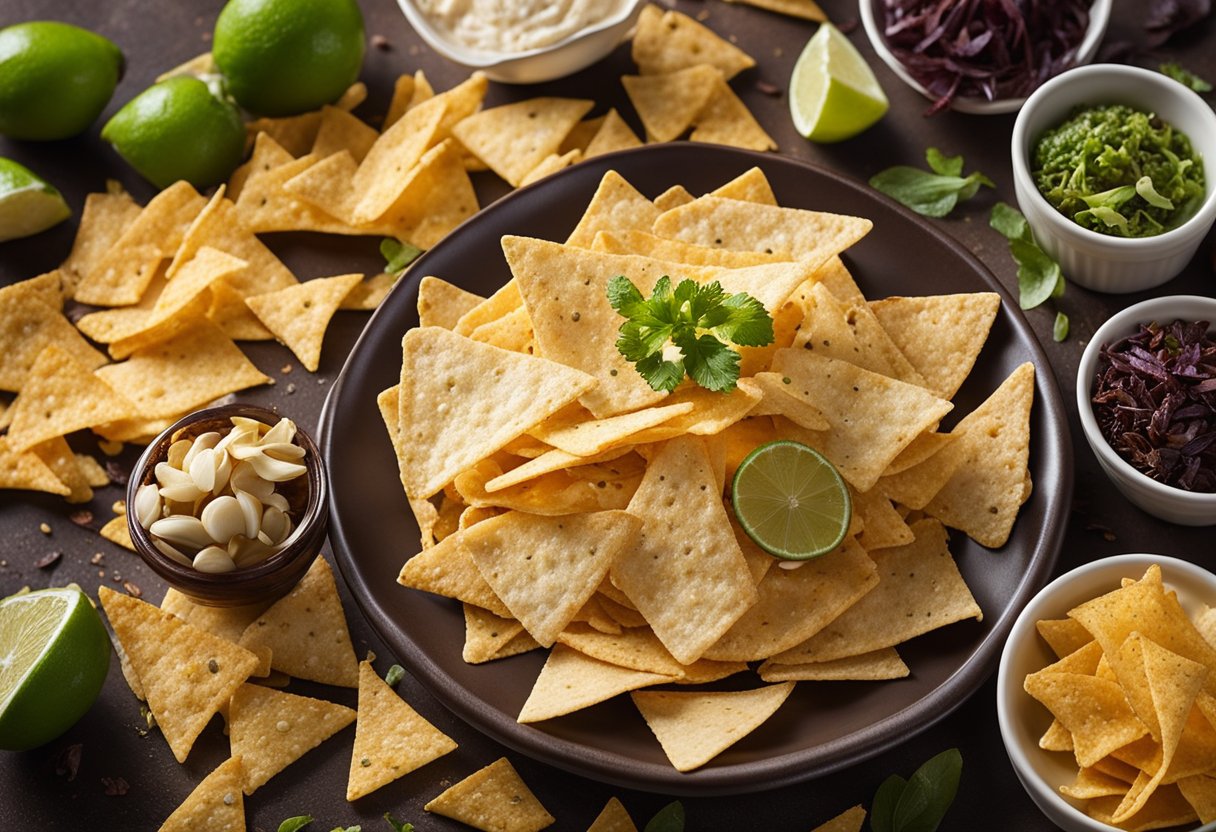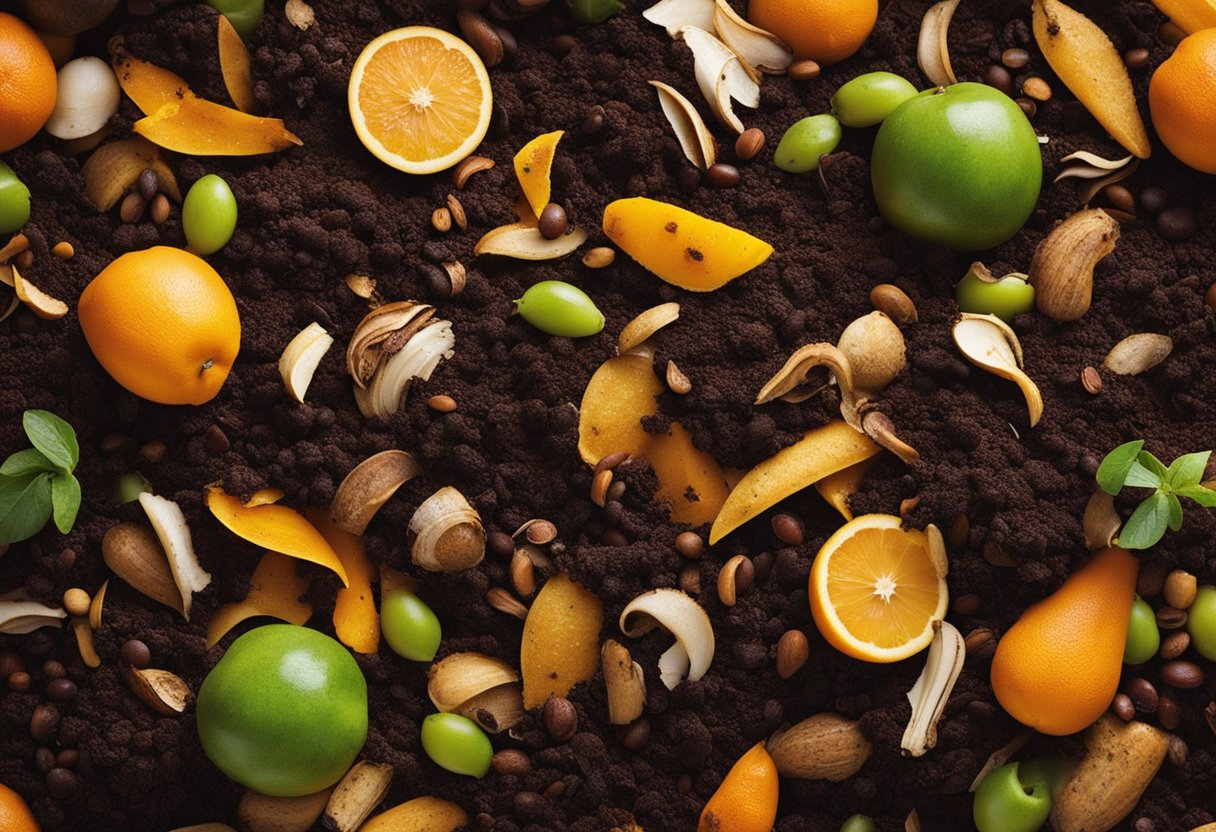As an Amazon Associate I earn from qualifying purchases.
At A Glance
Yes, you can compost tortilla chips. Being organic matter, tortilla chips will break down in a compost pile. It’s advisable to crush them into smaller pieces to expedite the decomposition process. However, if the chips are heavily salted or coated with artificial flavorings and preservatives, it’s better to exercise caution as these additives might not be beneficial for the compost or could potentially harm the microbial activity within the compost pile.
Tortilla chips are a popular snack food that many people enjoy. Whether you’re munching on them during a movie or using them to scoop up some salsa or guacamole, tortilla chips are a staple in many households. But what do you do with the leftover chips? Can you compost tortilla chips?

The answer is yes, you can compost tortilla chips. Tortilla chips are made from organic materials that can break down in a compost pile. However, there are a few things to keep in mind if you want to compost your leftover tortilla chips. For example, you should break them down into small pieces and add them to the compost pile as a “green” material. The size of the chips, the moisture content of the compost pile, and the temperature of the pile can all affect the composting process.
Composting tortilla chips is an eco-friendly way to divert food waste from landfills while enriching your compost with valuable nutrients. However, it’s important to note that you should only use tortilla chips in moderation in your compost. If you add too many chips to the compost, it can become too greasy and cause problems. Additionally, make sure to remove any non-compostable materials like plastic packaging before adding the chips to your compost bin.
Understanding Composting
Composting is the natural process of decomposition of organic materials. It is the process of breaking down plant and animal matter into a nutrient-rich soil amendment. This process is carried out by microorganisms such as bacteria, fungi, and insects. The decomposition of organic materials releases nutrients that can be used by plants for growth.
Composting involves the use of a compost bin or pile. The compost bin or pile is filled with organic matter such as leaves, grass clippings, food scraps, and other organic materials. The organic matter is broken down by microorganisms in the presence of oxygen. The decomposition process generates heat, which helps to kill pathogens and weed seeds.
Composting requires a balance of carbon-rich and nitrogen-rich materials. Carbon-rich materials are also known as “browns” and include items such as dried leaves, straw, and wood chips. Nitrogen-rich materials are also known as “greens” and include items such as grass clippings, food scraps, and manure. A balanced compost pile should have a carbon-to-nitrogen ratio of about 30:1.
The location of the compost pile is also important. A compost pile should be placed in an area that receives partial sun and is well-drained. The compost pile should also be turned regularly to ensure that oxygen is available to the microorganisms that carry out the decomposition process.
Composting is an excellent way to reduce waste and improve soil health. By composting organic materials such as tortilla chips, we can reduce the amount of waste sent to landfills and create a nutrient-rich soil amendment that can be used for plant growth.
Can You Compost Tortilla Chips
As someone who is passionate about composting, I have often wondered if tortilla chips can be composted. After some research, I found that tortilla chips can indeed be composted, but there are some things to keep in mind.
Tortilla chips are made from corn or wheat flour and can be broken down into small pieces to be added to the compost pile as a “green” material. However, it is important to note that not all tortilla chips are created equal. Some brands may contain additives or preservatives that can slow down the composting process or even harm the microorganisms in the compost pile.
When composting tortilla chips, it is best to use organic, non-GMO, and preservative-free chips. Additionally, it is a good idea to break the chips into small pieces to speed up the composting process. If the chips are oily or greasy, blot them with a paper towel to remove excess oil. This helps prevent the compost from becoming too moist.
It is also important to consider the overall balance of your compost pile. Tortilla chips are considered a “green” material, which means they are high in nitrogen. To balance out the nitrogen-rich chips, it is important to add “brown” materials that are high in carbon, such as leaves, straw, or shredded paper.
In summary, tortilla chips can be composted, but it is important to choose the right kind of chips and to balance out the nitrogen-rich chips with carbon-rich materials. By composting tortilla chips, we can divert food waste from landfills and enrich our compost with valuable nutrients.
Factors Influencing Compostability

When it comes to composting tortilla chips, there are several factors that can influence their compostability. One of the most important factors is moisture. Tortilla chips can be quite dry, which can slow down the composting process. If you are composting tortilla chips, it is important to ensure that your compost pile has a good level of moisture to help break down the chips.
Another important factor is temperature. Composting is a microbial process, which means that the microorganisms responsible for breaking down organic matter work best within a certain temperature range. For composting to be effective, the temperature of the compost pile should be between 120 and 160 degrees Fahrenheit. If the temperature is too low, the composting process will be slow, and if it is too high, the microorganisms responsible for breaking down the tortilla chips may be killed.
Microorganisms are also an important factor in composting tortilla chips. These microorganisms are responsible for breaking down the organic matter in the compost pile, including the tortilla chips. If your compost pile does not have enough microorganisms, the composting process will be slow. To ensure that your compost pile has enough microorganisms, you can add compost starter or use finished compost as a starter.
Additives, preservatives, seasonings, and flavorings can also affect the compostability of tortilla chips. Some additives and preservatives can slow down the composting process or even kill the microorganisms responsible for breaking down the chips. Seasonings and flavorings can also attract pests and rodents to your compost pile, which can be a problem.
Finally, mold and pathogens can also affect the compostability of tortilla chips. Mold can grow on tortilla chips if they are too moist, which can slow down the composting process. Pathogens can also be present on tortilla chips, which can be harmful to the microorganisms responsible for breaking down the chips. To avoid these issues, it is important to monitor the moisture levels of your compost pile and ensure that it is well-aerated.
What Else Goes into a Compost Pile

When it comes to composting, there are many materials that can be added to a compost pile. These materials can be divided into two categories: green materials and brown materials. Green materials are high in nitrogen and include things like vegetable scraps, fruit waste, coffee grounds, and grass clippings. Brown materials are high in carbon and include things like leaves, straw, shredded paper, and cardboard.
In addition to these materials, there are a few things that should not be added to a compost pile. These include meat, dairy products, and oils, as well as any diseased plants or weeds that have gone to seed. These materials can attract pests and slow down the composting process.
Eggshells are a great addition to a compost pile, as they are high in calcium and can help balance the pH levels of the compost. Yard waste, such as grass clippings and leaves, can also be added to a compost pile, as can kitchen scraps like vegetable peels and fruit waste.
To create nutrient-rich soil, it’s important to have a good mix of both green and brown materials in the compost pile. This will help to create a balanced compost that is rich in nutrients and perfect for growing plants.
In addition to traditional composting, vermicomposting is also an option. This involves using worms to break down organic waste and create nutrient-rich soil. Nitrogen sources like coffee grounds and vegetable scraps can be added to a vermicompost bin, along with shredded paper and cardboard.
Overall, composting is a great way to reduce food waste and create nutrient-rich soil for gardening. By adding a variety of materials to a compost pile or vermicompost bin, you can create a healthy and productive environment for your plants to grow.
Benefits of Composting
Composting is an environmentally conscious way to reduce food waste and landfill waste while creating nutrient-rich soil amendments. By composting, we can divert organic waste from landfills, which reduces greenhouse gas emissions and helps to preserve our environment.
In addition to reducing waste, composting also helps to improve soil health and promote plant growth. Nutrient-rich compost can be used to nourish plants and gardens, which can lead to healthier and more productive crops.
Composting is a simple and effective way to recycle organic materials and create a sustainable future. By composting tortilla chips and other snack foods, we can help to reduce waste and promote a healthier environment.
Precautions and Tips for Composting Tortilla Chips
Composting tortilla chips is an excellent way to reduce waste and give back to the environment. However, there are some precautions and tips to keep in mind when composting tortilla chips.
Firstly, it is important to note that tortilla chips contain oil, which can slow down the composting process. To avoid this, it is best to compost tortilla chips in moderation and mix them with other organic materials such as leaves, grass clippings, and vegetable scraps.
Another consideration is the potential for unwanted pests to be attracted to the tortilla chips. To prevent this, it is recommended to shred or chop the tortilla chips into smaller particles before adding them to the compost pile. This will also help to speed up the composting process by increasing the surface area of the chips.
It is also important to consider the environmental impact of composting tortilla chips. While tortilla chips are biodegradable and will eventually break down into nutrient-rich soil, they can also contribute to methane emissions if not composted properly. To avoid this, it is best to compost tortilla chips in a well-aerated compost pile and turn the pile regularly.
If you are using a commercial composting service, it is important to check with the service provider to ensure that tortilla chips are accepted. Some commercial composting facilities may not accept tortilla chips due to their high oil content.
In conclusion, composting tortilla chips is a great way to reduce waste and give back to the environment. By following these precautions and tips, you can ensure that your compost pile remains healthy and free of unwanted pests while also minimizing the environmental impact of your composting efforts.
Impact of Packaging on Composting
When it comes to composting, the packaging of the food we consume can have an impact on the process. In particular, plastic packaging can be a problem. While tortilla chips themselves can be composted, the plastic bag they come in cannot.
Plastic packaging can take hundreds of years to decompose, and it can release harmful chemicals into the soil as it breaks down. Additionally, if plastic ends up in the compost, it can contaminate the compost and make it unusable.
To avoid these issues, it’s important to remove any plastic packaging from the tortilla chips before composting them. This can be done by either recycling the packaging or throwing it away in the trash.
In general, it’s a good idea to try to reduce the amount of plastic packaging you use in your daily life. This can help to reduce the amount of plastic waste that ends up in landfills and the environment. Some ways to reduce plastic packaging include:
- Bringing your own reusable bags to the grocery store
- Choosing products with minimal packaging
- Buying in bulk to reduce packaging waste
- Using reusable containers for food storage
By being mindful of the packaging we use, we can help to create a more sustainable and environmentally-friendly world.
